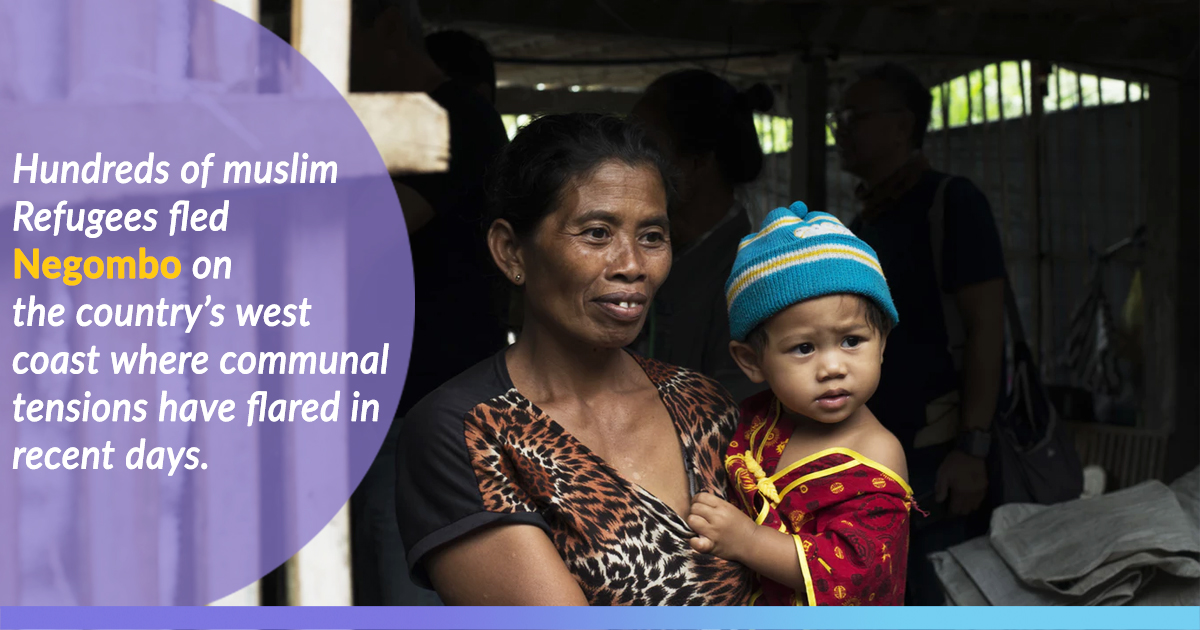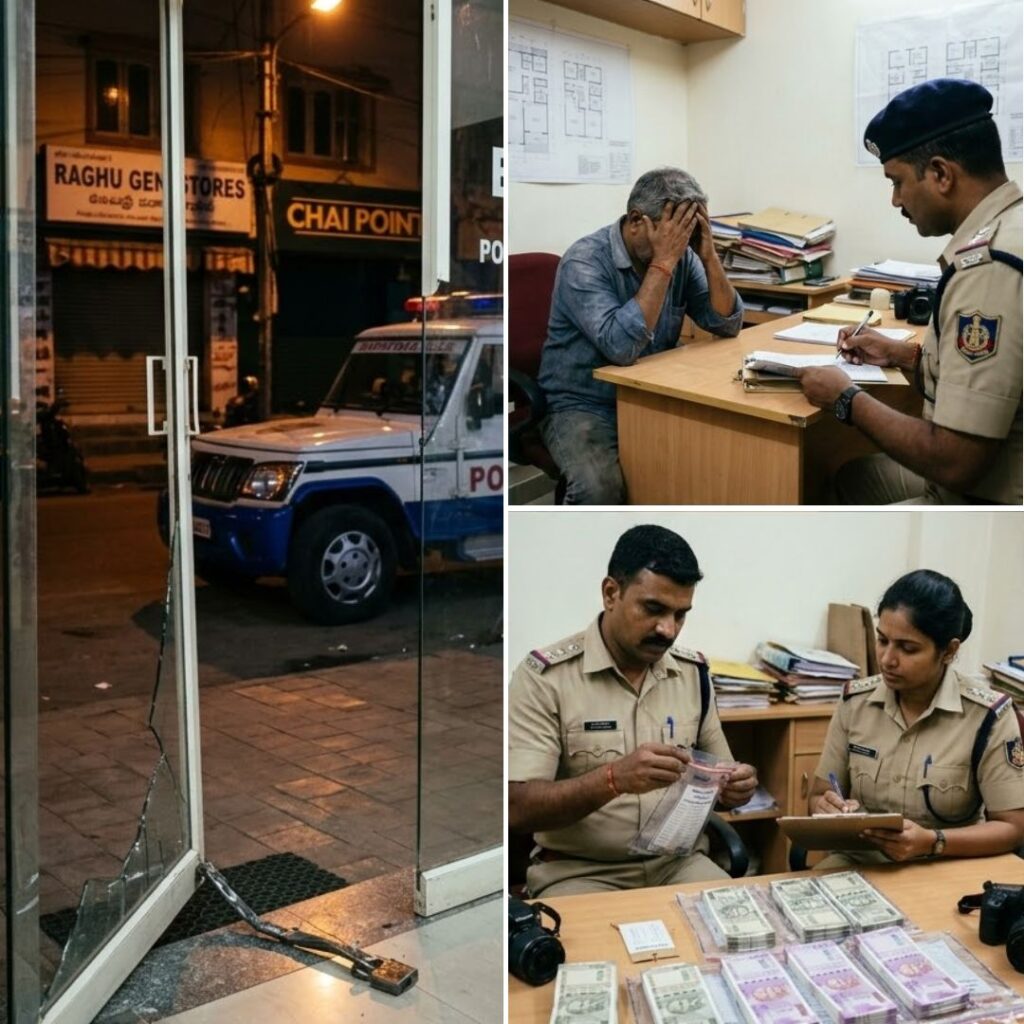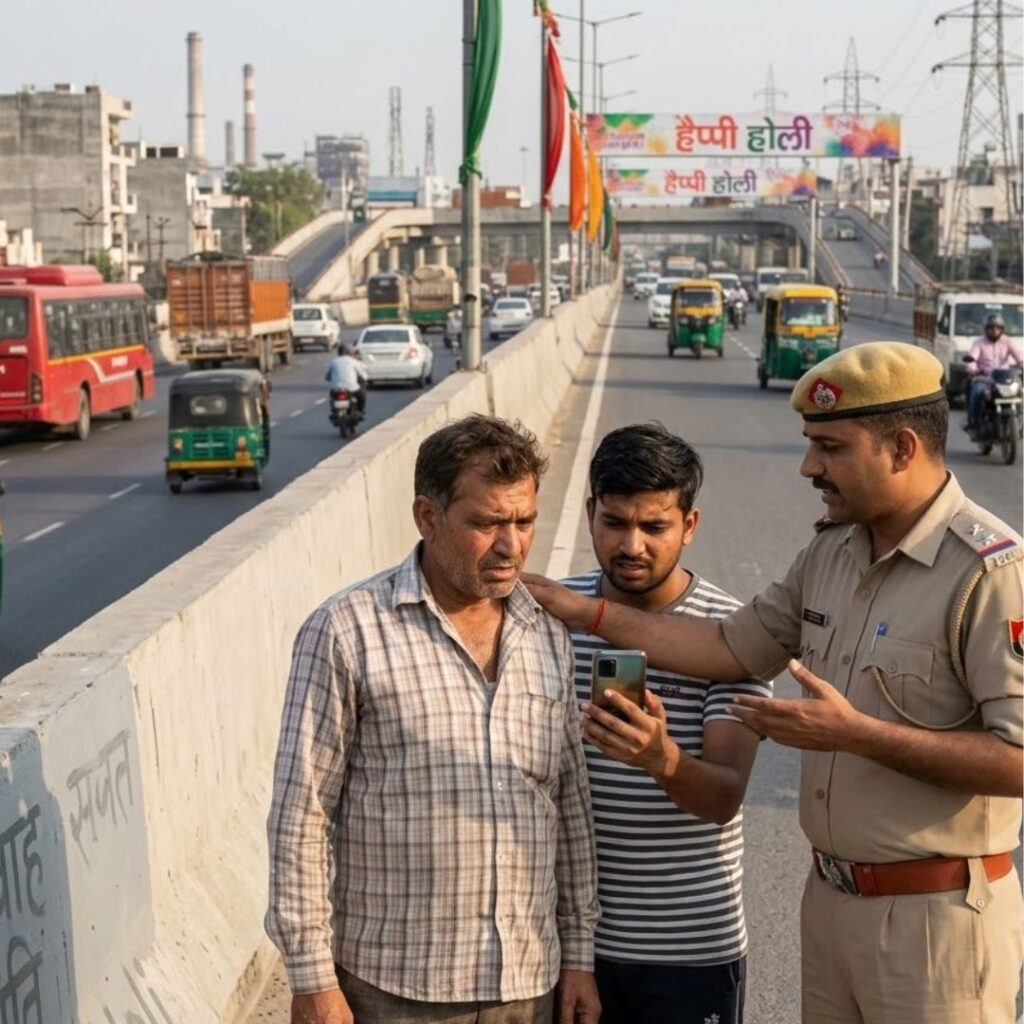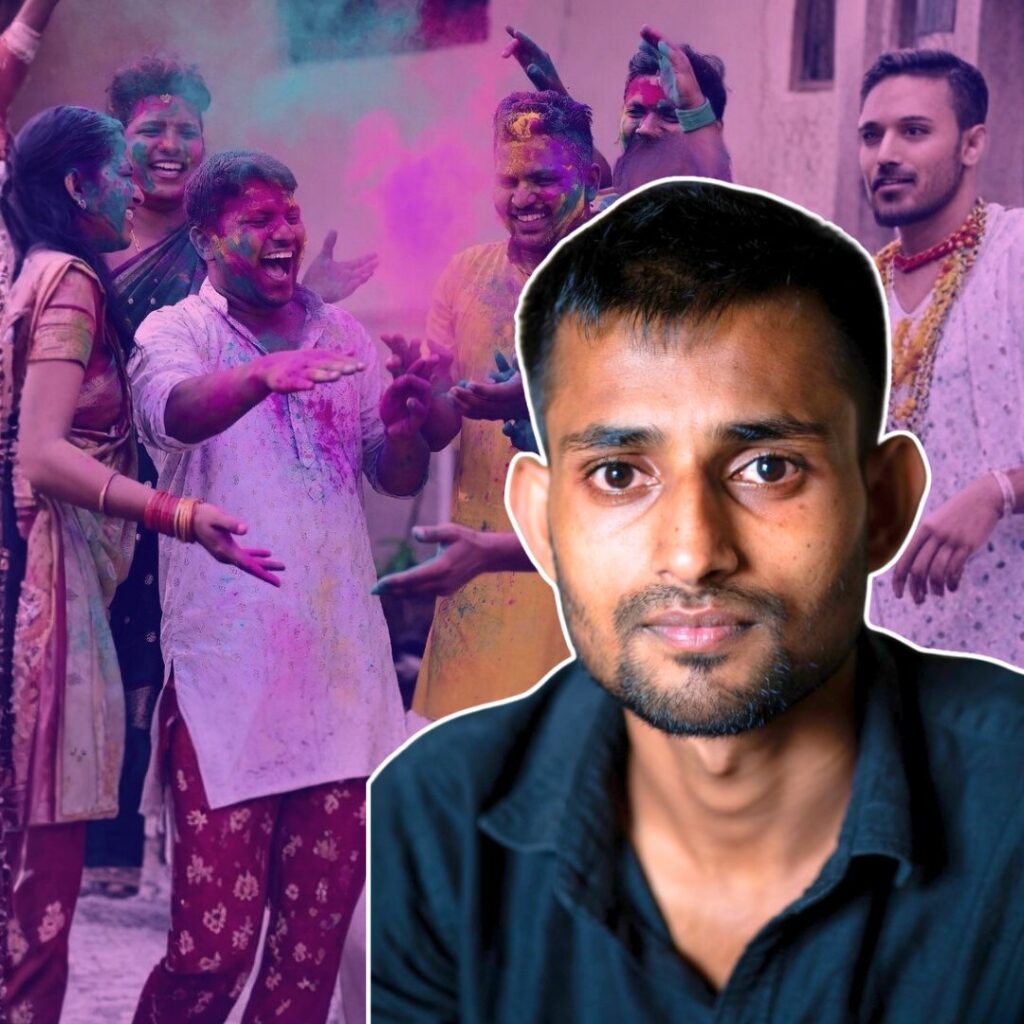As grief-stricken Sri Lankan Christians still bury their dead from the horrific Easter Sunday blasts on 21st April, hundreds of Muslim refugees are fleeing the western frontier of Negombo in Sri Lanka owing to the growing communal backlash. In grief and anguish, Sri Lankan natives are now reportedly attacking homes of Muslim Ahmadis, a community of refugees from Pakistan, forcing them to flee their homes. St Sebastian Church in Negombo was one of the three churches targeted by the Islamic State-inspired suicide bombers and is also reported to be the worst hit target.
Pakistani-Muslims are fleeing in all haste, crammed into buses organised by community leaders and the police after facing revenge threats by locals. Adnan Ali, a Pakistani Muslim, who was preparing to board a bus, spoke to Reuters “Because of the bomb blasts and explosions that have taken place here, the local Sri Lankan people have attacked our houses…Right now we don’t know where we will go.” (sic)
“We are not terrorists.”
The Times of India reported that at least 800 men, women and children, all asylum seekers living in small rental homes under the care of United Nations Human Rights Council (UNHRC) were suspected and were asked to move out of their temporary homes by their landlords. Their status as foreign Muslim refugees in these troubled times in Sri Lanka puts them at a disadvantaged position.

Michael Safi/The Guardian
Refugees are also seeking shelter in the Negombo police station and the local mosque.
The UNHRC is working with local and national authorities to ensure the safety and security of the persecuted community. “Around 1600 refugees and asylum seekers are registered with UNHCR in Sri Lanka,” said Babar Baloch, a UNHCR spokesperson who spoke to The Quint.
The Guardian reported 21-year-old refugee Qazi Moin Ahmed said, “We are not their enemies. We are facing the same situation these people are facing…We are not terrorists, but they consider us terrorists.” (sic)
TOI also reported that on Wednesday, even as distraught family members of the more than 100 victims of the bombing at St Sebastian’s Church took part in the mass funeral, a mob armed with iron bars began attacking the houses where the Pakistani refugees lived on the edge of the town. They barged into houses, pulled down doors and windows and dragged out the men. Sri Lanka also faced initial inter-communal violence post the blasts where Muslim shops were vandalised, and mosques were pelted with stones.
The United Nations estimates that the current population of Sri Lanka to be at 21,002,747 based on a report released on Sunday, April 7, 2019, and the Muslim population of the country is estimated to be 10% of it.
Ousted from Pakistan
The Ahmadiyya sect of Muslims fled Pakistan owing to the persecution by the majoritarian Sunni Community back home. In 1974, Pakistan changed its constitution to declare Ahmadis non-Muslims. Ten years later, the government declared it a criminal offence for Ahmadis to “pose as Muslims” and call their place of worship as a “Mosque.” The Ahmadiyya globally, are also persecuted elsewhere in Saudi Arabia and legally barred from entering Mecca and Madina, the holy places of worship of the Muslim community.
The Guardian explains that this is because of the contrary religious belief held by the Ahmadiyya sect. They believe in another Islamic prophet Ahmad who lived in the 1900s as opposed to the fundamental Islamic belief that prophet Muhammed was the last messenger sent by God.
Other instances of Muslim violence in the country
The last instance of targeted violence against the Muslim community in the country was the Anti-muslim Riots of 2014 which saw radical Sinhalese Buddhists attacking the Muslim minorities. It is also suggested that the terror group National Thoweeth Jama’ath (NTJ) now responsible for the blasts, might have radicalised around this time. AFP also previously reported that the NTJ was a little known group that vandalised Buddhist statues before the Easter Sunday terror. The Bodu Bala Sena, a Sinhalese Buddhist majority organisation, has been known to have organised rallies and campaigns against the Muslim minorities around this time. The riots also reported a death toll of 4 and many more injured in its wake.
Revised Death Toll
The number of victims who were killed in Negombo St.Sebastian Church cannot be stated with certainty as the death toll has now been altered by the Sri Lankan Health Ministry as 253 and not 359. Sri Lankan Authorities have revised the death toll after reconciling the autopsy and DNA reports of the victims. Since many of the bodies were badly mutilated, the Health Ministry suggested that this would have resulted in an incorrect calculation or double-counting.
Defence Minister Resigns
Sri Lankan Defense Secretary Hemasiri Fernando stepped down on Thursday 25th April, taking responsibility for the lapses on the part of the Sri Lankan intelligence which did not act on the prior information received on the Sri Lankan blasts.
Reuters reported that he denied any failure on his part but said he was taking responsibility for the failures of the institutions he headed as the secretary of defence.
Also Read: Sri Lanka Blasts: All We Know About The Identities Of Suicide Bombers And The Govt Action Taken












